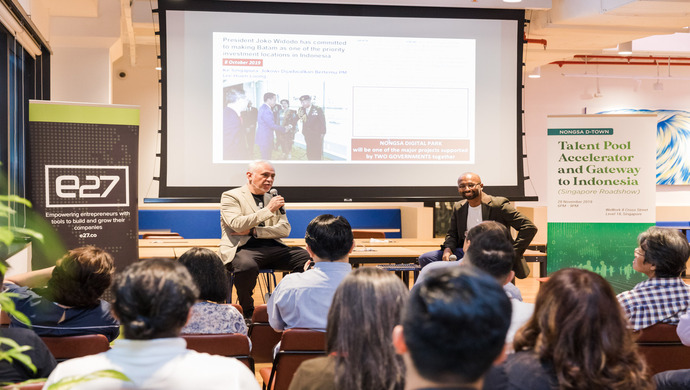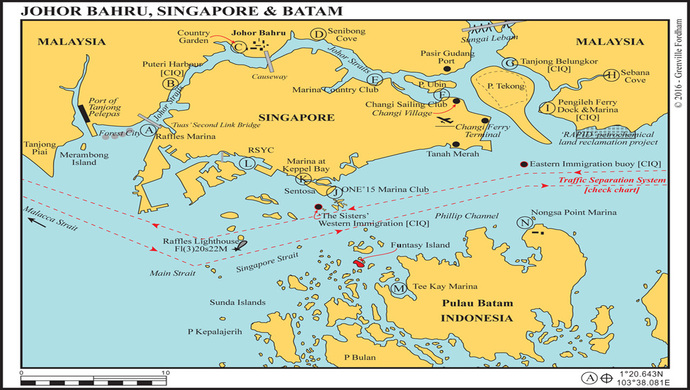
On October 8, 2019, Indonesian President Joko Widodo announced firm commitment in making Batam one of the prime investment locations in Indonesia along with support from Singaporean Prime Minister Lee Hsien Loong.
One of the major projects emerging from this partnership was the Nongsa Digital Park, an initiative that aims to serve as a “digital bridge” between Singapore and many other Indonesian cities.
Being strategically well located with six landing stations and 13 cables the park has diverse connections to locations in Indonesia, Singapore, US West Coast, and Malaysia, and claims to have the resources and infrastructure suited for tech companies and start-ups.

Image Credit: Southeast Asia Pilot
In a recent event organised by e27, Marco Bardelli, Senior Director and Member of Board of the Nongsa Digital Park also shared development plans for Nongsa D-Town. With a total area of 62 hectares, the goal is to ” incorporate plans for a future data centre, complete with lifestyle and tourist facilities.”
This plan aims to drive digital nomads, entrepreneurs and startup incubators into providing them with the perfect ecosystem of living, work and leisure. Future development plans include pathways for eco-friendly electric bicycles and buggies, and more food and beverage outlets for the community.
Also Read: Indonesian leaders to help strengthen Western Indonesia’s startup ecosystem
Currently, the first three buildings of the park have been launched out of which some of the major tenants in the Nongsa ecosystem include corporate giants such as Apple, Grab, 99.co, co-hive, HP and Unilever, to name a few.
During the event, Glints Academy, a coding boot camp and another major tenant in Nongsa, showcased some of its quirky and interesting mobile apps developed by some of the students. Out of it which were Museek, a platform where users can book music artists, and BeLegend, where athletes can look for a scholarship from private companies.

Image Credit: Glints Academy
As trends for offshoring widely increases according to an article published by Deloitte there is a continuous demand for talent development in different regions of Asia. In 2018, 31 per cent of services happened to be outsourced for IT with a forecast of future growth.
The main reason why companies seem to be flocking towards outsourcing their hires seems to be mainly due to cost efficiency. But other long term strategic benefits include having a wide buffet of talents to pick from.
While there are many alternatives to different locations for outsourcing, what differentiates Batam from the likes of Vietnam, India and China is the ease of distance from Singapore, the cost and the investment in talent supported by two governments.
Also Read: Slew of Indonesian MOUs aim to support Batam island tech scene
As the race for outsourcing/offshoring continues, Batam clearly manages to establish itself as the dark horse of the race.
–
The post Batam shows strong signs of becoming the hotbed for international tech talent development appeared first on e27.